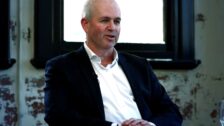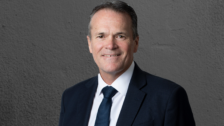From inflation to recession, Joseph Kalish calls it as it is
Joe Kalish – Economist
With the US equity market down 16.9 per cent and the Australian market down 10.1 per cent, year-to-date, all eyes are now on the US bond market after recession warning signs flashed bright red recently.
Economists say yields on the 10-year US government bond have fallen below 2-year US government bond yields for the third time this year. This inversion has preceded every US recession over the past 50 years; while not immediately, a recession has followed within two years of a yield inversion. But this is only an indicator and is by no means a guarantee.
So is a US recession imminent?
Joe Kalish, chief global macro strategist at Ned Davis Research, spoke remotely at the Inside Network’s recent Income & Defensive Assets Symposium, where he discussed whether a US recession was looming, based on economic data.
Like all good economists, Kalish referred to a set of recent economic indicators to paint a picture of where inflation was heading. He said, “Durable-goods inflation has started to subside on the back of easing demand and supply-chain bottlenecks starting to improve. To add to it, food inflation should start to decline. The one to watch is services inflation, which has risen to its highest level since 1990.”
Inflation refers an increase in the level of prices of products and services that households buy. Government stimulus released during Covid caused a spike in product inflation, as households spent this money on discretionary items. Post-Covid, consumers are spending less on discretionary items and more on services such as air travel, as restrictions and border closures dissipate. This rotation is causing a spike in services inflation.
Kalish says, “Although inflation is peaking, it may remain stubbornly high and above central-bank targets in the short term. However, inflation expectations have started to retreat around the world. Swaps all peaked weeks ago. The trend is down. Going on these indicators, inflation should be heading lower for the rest of the year.”
In a bid to curb inflation, the US Fed is going hard on hiking rates. “The cost of bringing inflation down, will be slower growth or recession. But we would like to see additional confirmation from economic indicators such as the Leading Index (produced by the Conference Board, the Leading Index uses ten predictive variables that anticipate turning points in the business cycle by about seven months) to show that the economy is falling into recession. Manufacturing data and unemployment claims are among others,” says Kalish.
Against the macro backdrop, Kalish found that in the past 30 years or so, once 10-year treasury yields peaked, they plunged right after a tightening cycle finished. While credit spreads in the high-yield market have widened they haven’t widened to recessionary levels.
As a recession becomes more apparent, the credit spread between high-yield bonds and the 10-year Treasury, because investors need to be paid more for higher risk. In a recession, it would be typical for the spread to be as high as 10 percentage points, says Kalish. He concludes by saying, “Inflation is peaking, but will start to fall towards the end of the year. Recession calls are rising, but there is not enough data or evidence to substantiate that call.”










